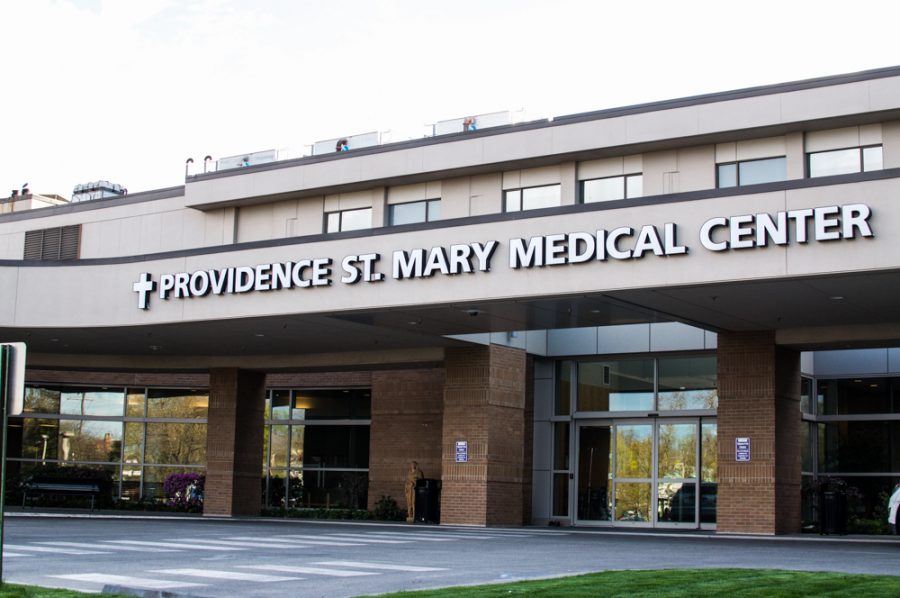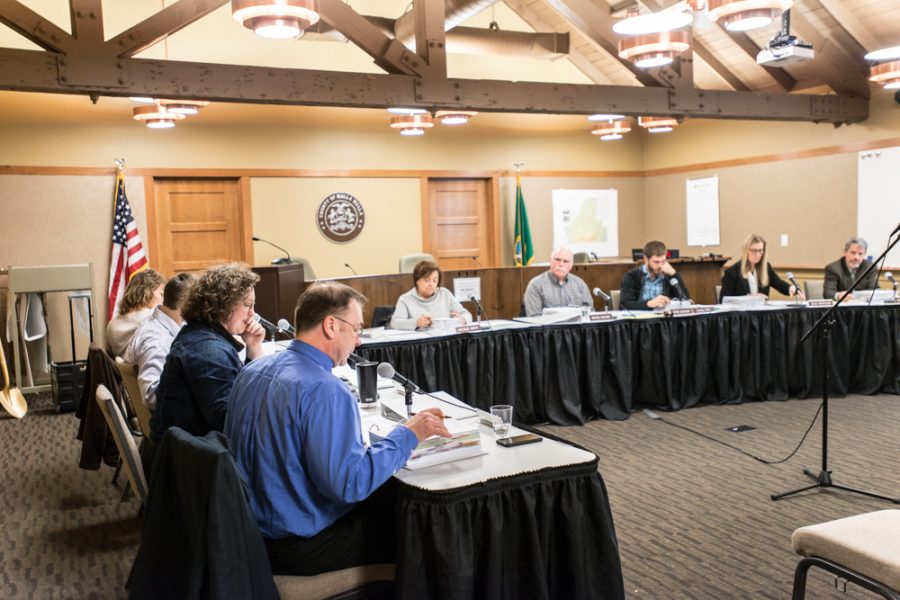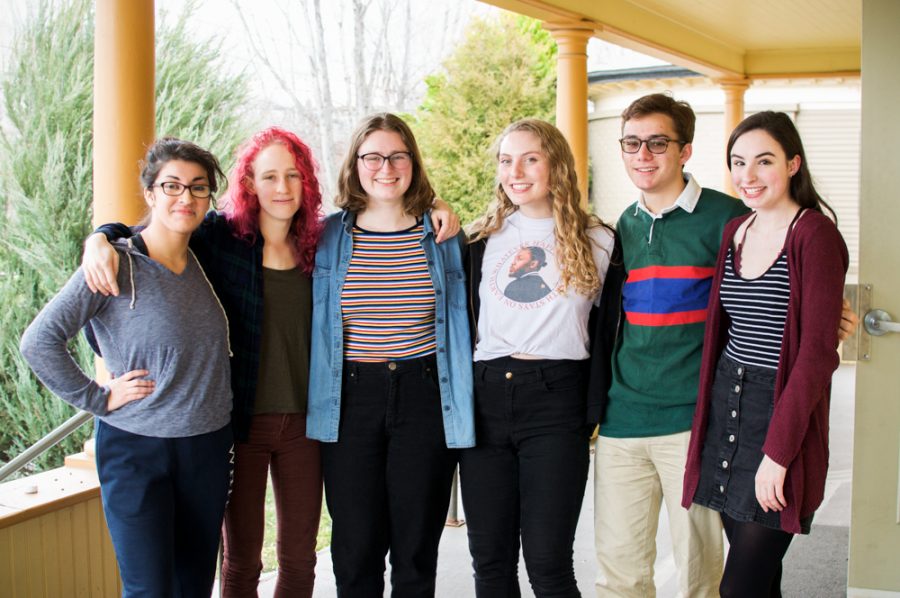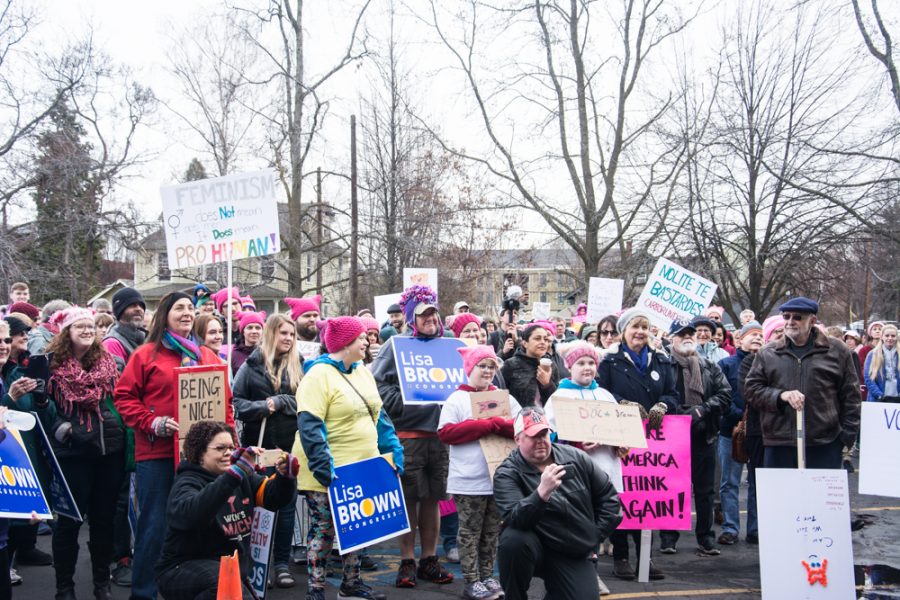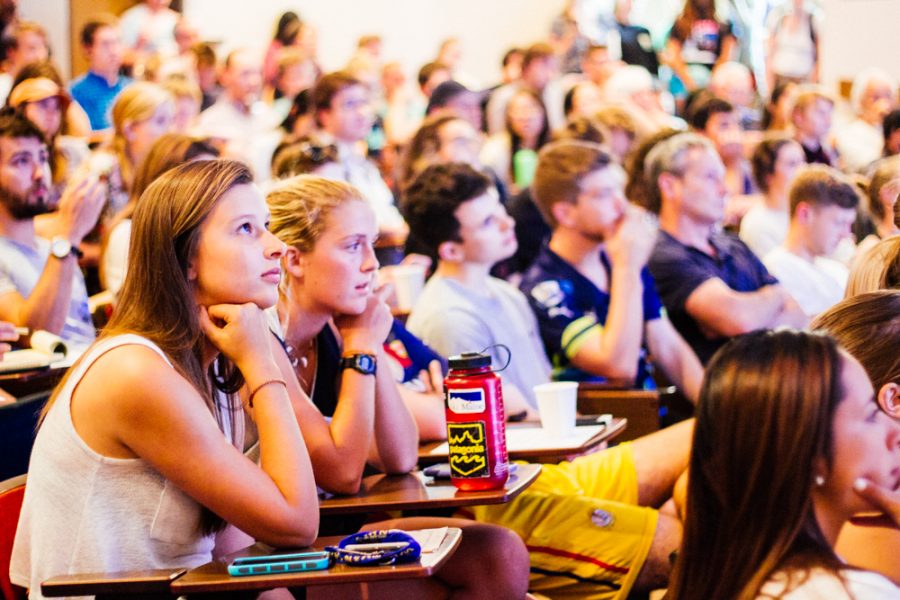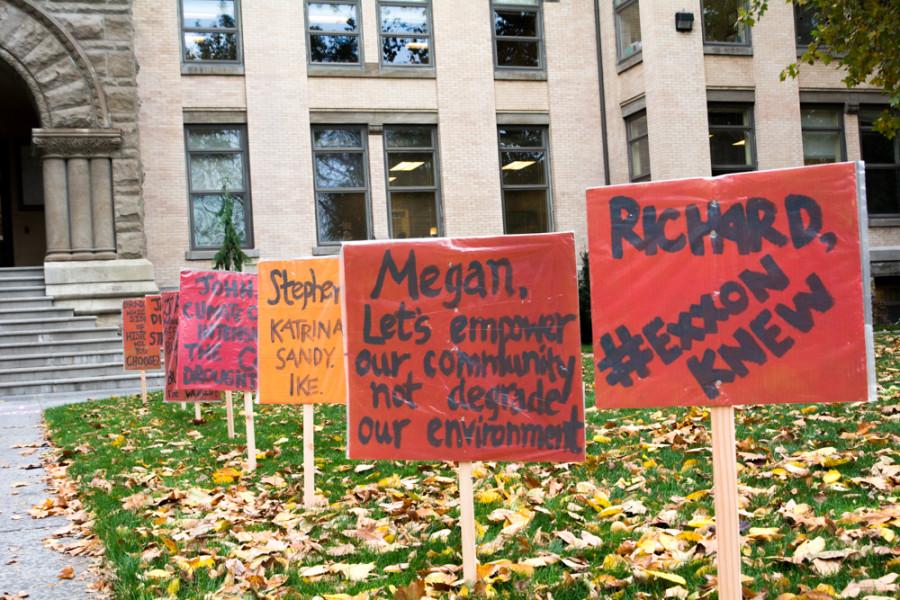“The Future of American Politics: Civility vs. Gridlock,” put on by the Diversity Coalition of Walla Walla, provided the community with a passionate panel on politics in Reid Campus Center Monday night, Oct 29.
The event began with a small introduction from Dr. Steve Rubin, a former psychology professor at Whitman College who is the president of the Diversity Coalition. This event was put on because the coalition had the city of Walla Walla name the month of October “Freedom of Discrimination Month.” Given the current election season, the panel focused on celebrating political diversity. Dr. Rubin introduced Professor David Schmitz, chair of the history department at Whitman, to provide an overview of the party system through American history.
After Professor Schmitz spoke, Dr. Rubin turned it over to the five panelists. Each panelist was a member of the Walla Walla Valley community and affiliated themselves with a different political party. Each was given about 10 minutes to talk and address their ideas on role of government, civility in government and the apathy of the public regarding politics.
Ted Richerzhagen, a former chemistry professor at Walla Walla Community College, is a member of the Tea Party. He spoke about the guiding principles of the Tea Party such as fiscal responsibility, the free market and limited government, and emphasized the need for the government to limit itself. In regards to civility, he believes the public and the media both need to return to old values such as respect.
Ethan Pooley, a Navy veteran and philosophy major from Walla Walla Community College, spoke about his membership in the Libertarian Party. Pooley became interested in libertarianism in college through political philosophy.
“I began asking questions like ‘How can I make other people live a certain way?’ and ‘How can I make decisions for them?’ I realized I couldn’t,” said Pooley.
He emphasized a limited government to a greater degree than Richerzhagen, stating that government’s role should be to administer justice to individuals who conduct their own affairs. Pooley sees a major need for charity in political discourse, to put each other’s ideas in the best light possible. To address apathy, Pooley believes that more power should be given on the state and local levels so more voices will be heard.
Nancy Monacelli, a Democrat, was a delegate at this year’s National Democratic Convention. Monacelli’s views on the government’s role center on community and the idea of the government and public working to accomplish things together. She believes that resistance to change and fear of the other, often fueled by the media, cause a lack of civility, as well as apathy. To combat this, Monacelli called for more education regarding politics and civics, and for the public to elect better, more civil candidates.
Terry Nealey, the representative of the 16th District in the Washington state legislature, represented the Republican Party on the panel. Nealey sees the government’s role as limited and meant to provide equal opportunity for all individuals. Nealey believes the government should put individuals and businesses first. He also pointed to fiscal responsibility as the main difference between Democrats and Republicans, in that it is more important to the Republicans. Nealey says that commercials give the public a bad impression, and that politics between the parties is actually pretty civil.
“The ads seem to be negative and put the opponents in a bad light,” said Nealey, “But that’s really not the case once you’re in legislature. It’s important to work together to get things done.”
Like Monacelli, Nealey preached the need for more education to improve on the issue of apathy.
Carl Seines, a veteran who served in Korea and Vietnam, is a member of the Green Party. Given that the Green Party is not as widely understood besides its environmental beliefs, Seines outlined its main principles, such as social justice, decentralization and nonviolence. Seines’ ideas on nonviolence were especially moving, as he currently has lung cancer because of the Agent Orange he inhaled during his service. Above all, Seines emphasized the need for the government and community to work together to achieve what an individual cannot and to create a better world for current and future generations.
Dr. Rubin thought the panel went well, but was a bit disappointed at the low turnout of Whitman students.
“If Whitman students are truly interested in education, they need to understand that it goes beyond homework assignments. At a college like Whitman, if they bring someone in, students should try to go,” said Rubin.







